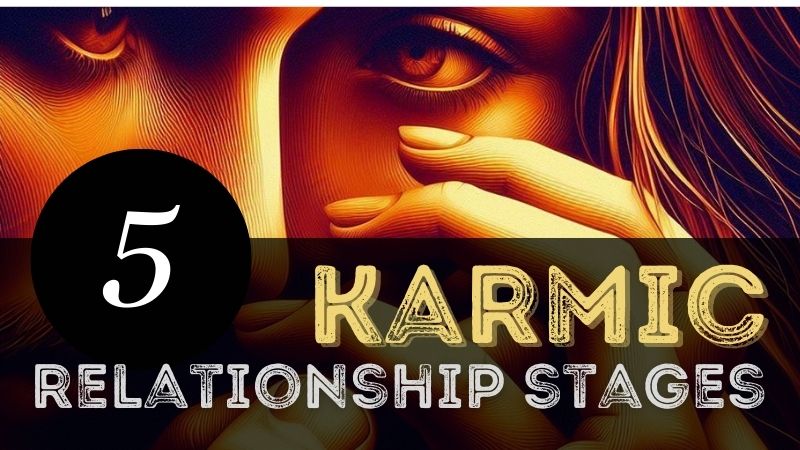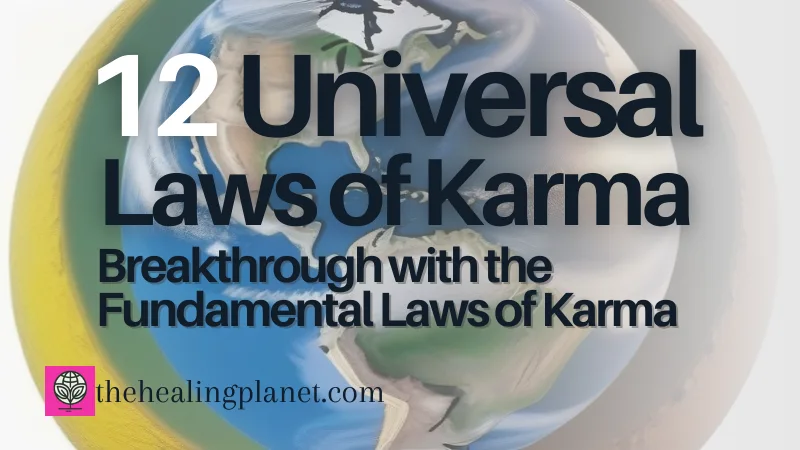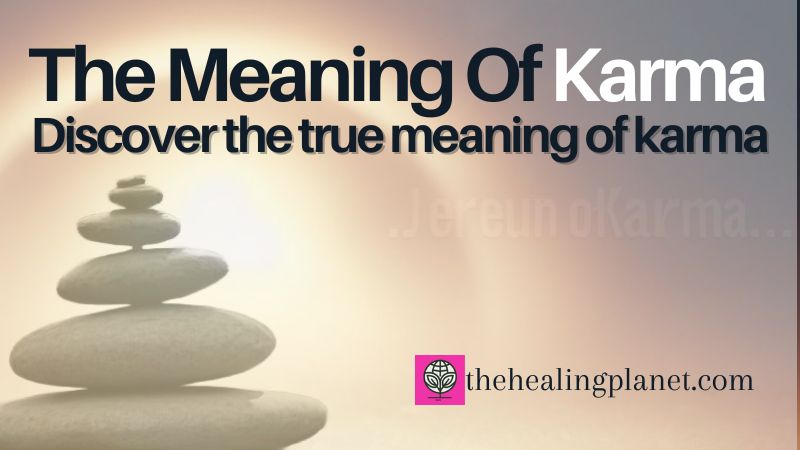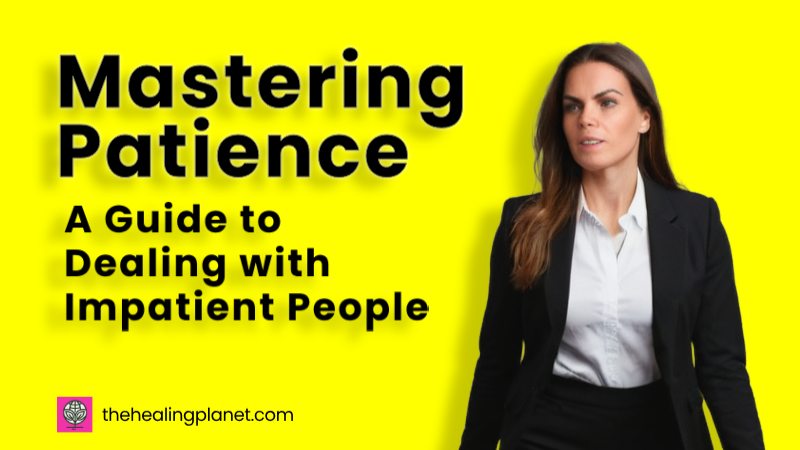Explore the powerful influence of the 5 karmic relationship stages on life and love. Dive deep now!
What are the stages of a Karmic Relationship?
A karmic relationship, as defined by spiritual and metaphysical concepts, is a profound bond that one forms with another individual in a lifetime, which is believed to be a result of the interactions between those souls in previous lives.
This relationship carries immense significance as it tends to be intense and filled with emotional turmoil aimed at triggering personal growth and development.
A karmic relationship, thus, serves to teach essential life lessons to the involved individuals by bringing forth unresolved issues from past incarnations.
Many believe that these relationships are not coincidental but rather predestined encounters meant to improve one’s soul and consciousness. These relationships can often lead to extreme emotional states and challenging situations which are intended for self-improvement and personal evolution.
In this journey of a karmic relationship, individuals often go through various stages; from an intense attraction stage that feels almost like love at first sight, followed by periods of conflict and detachment before they can finally achieve resolution or closure.
These stages will be further discussed in the following sections of this text. Understanding them can provide meaningful insights into how one navigates their own karmic relationships and uses them for their spiritual growth.

Stage 1: Soul Recognition
Soul recognition is the first and most exhilarating stage in the journey of soul connections. It’s that instant, inexplicable pull towards another person that goes beyond the physical, transcending what we can see or touch. This is a stage where two individuals feel an intense connection upon meeting; a sense of familiarity as if they have known each other for years, even if it’s their first encounter.
This immediate recognition may be attributed to past life connections. If we consider reincarnation as a possibility, then our souls might have crossed paths in previous existences. We could have been friends, lovers, or family in these past lives which can explain the profound sense of connection felt with certain individuals in this lifetime.
There are several signs and signals that suggest you’re experiencing soul recognition. One prominent signal is instantaneous comfort – despite being strangers, there’s an immediate ease and acceptance when interacting with each other. Another sign is a deep sense of understanding; you find that your thoughts align naturally, you understand their intentions without them having to explain extensively.
You may also experience intense eye contact where looking into their eyes feels like seeing into your own soul – it’s comforting yet intimidating at the same time. Other examples include shared dreams or synchronicity such as thinking about them just when they call or text.
However, it’s important to remember that while these signs can indicate soul recognition, they are not definitive proof. Each journey is unique and personal. The most significant indicator will always be the way you feel; it’s something deeply spiritual and intrinsic that simply cannot be ignored.
Stage 2: Turmoil and Chaos
The second stage of any journey is often riddled with turmoil and chaos. It’s a period of exploration, one marked by difficulties, conflicts, and challenges that push us out of our comfort zones. This stage in particular serves a crucial purpose – it allows us to address unresolved emotions and patterns from the past.
In karmic relationships, these experiences are especially prevalent. These relationships are described as ones where we learn life lessons that we failed to learn in our previous lives or earlier stages through intense personal experiences. The turmoil here isn’t merely coincidental but tends to be a product of older, unresolved issues.
Consider the story of Jake and Sarah. They found themselves inexplicably drawn towards each other from the moment they met. Their relationship began like a whirlwind romance; however, it wasn’t long before they started experiencing conflicts over trivial matters, leading to frequent arguments and misunderstandings.
Jake had always had problems with expressing his emotions while Sarah struggled with trust issues due to past betrayals. Despite being deeply in love, their unresolved personal issues created chaos within their relationship.
The intensity of their conflicts forced them both to confront their individual issues. Jake realized that he needed to communicate better, acknowledging his fear of vulnerability which stemmed from his upbringing. On the other hand, Sarah recognized her need for constant reassurance was more about her insecurity than Jake’s actions.
By enduring this stage of turmoil and chaos, Jake and Sarah were able to address their emotional baggage from the past. This stage acted as a mirror reflecting what they needed to work on individually for achieving mutual harmony in their relationship.
This is just one example that illustrates how tumultuous times can lead us toward greater self-awareness and growth despite the pain it may cause initially. Life often uses chaos as an instrument for transformation; it disorients us only to help us find our true direction.
Stage 3: Awakening and Growth
The third stage of personal development, often referred to as Awakening and Growth, is marked by profound self-reflection and personal evolution. It is during this phase that individuals start examining themselves more critically, not in a destructive way, but rather to understand their actions, decisions, and emotions better.
Self-reflection during this phase involves analyzing one’s past mistakes not with regret or guilt but from the perspective of learning. Every mistake made in the past carries a lesson to be learned. Identifying these lessons helps in avoiding repetition of the same errors in the future; it promotes growth.
Soon, patterns within oneself become evident. These patterns may revolve around behavior, reactions to specific situations, or decision-making processes. Understanding these patterns further enables individuals to break any negative cycles they may be unknowingly perpetuating.
There’s also potential for significant spiritual or personal growth during this stage. As the individual continues on this journey of self-discovery and understanding, they may find themselves connecting more deeply with their spirituality or experiencing a shift in personal beliefs and values. This aspect of growth can vary greatly among individuals but is nevertheless an essential part of the Awakening and Growth stage.
In essence, this third stage heralds a period of transformation – one where learning from the past and recognizing one’s patterns become stepping stones towards substantial personal or spiritual development.
Stage 4: Healing and Resolution
The fourth stage in any relationship, especially a karmic one, is where individuals take strides towards healing past wounds. This phase is crucial as it allows both parties to grow individually and as a couple. It’s not about forgetting the hurt or glossing over the troubles; instead, it’s about understanding them, learning from them and moving forward.
Forgiveness plays a pivotal role in this stage. It doesn’t mean condoning wrong behavior but rather releasing the anger and bitterness that holds you back from growth. By choosing to forgive, you free yourself up for inner peace and open doors for positive energy to flow into your life.
Self-compassion is another essential element during this healing process. Often we are our harshest critics; we blame ourselves for things going awry and punish ourselves mentally. However, showing compassion towards oneself means acknowledging that everyone makes mistakes, learns from them and grows.
Acceptance follows closely on the heels of forgiveness and self-compassion. It involves accepting what happened without any attempt to change or deny reality. By accepting the situation at face value, it enables us to deal with it more effectively.
Various strategies can be employed to facilitate healing and resolution in a karmic relationship:
- Open Communication: Honest conversations about feelings can help mitigate misunderstandings and foster mutual respect.
- Empathy: Putting oneself in another’s shoes promotes understanding of their perspective.
- Apology: Offering a sincere apology can go a long way in mending relationships.
- Counseling: Seeking professional help can provide useful tools to navigate through complicated emotions.
- Mindfulness: Practicing mindfulness helps stay grounded in the present moment rather than dwelling on past hurts or fretting about the future.
Remember, the path towards healing isn’t linear – there may be setbacks along the way but every step taken is progress nonetheless!
Stage 5: Liberation and Release
The final stage of spiritual development is often marked by a powerful longing for freedom and release from the karmic bond. This stage reflects the ultimate yearning of the soul to break free from all earthly constraints and transcend into a higher state of existence.
The significance of this stage should not be underplayed, as it symbolizes the culmination of self-realization and spiritual enlightenment. It is at this pivotal point that individuals begin to perceive life’s experiences through a different lens, one that leads to an understanding of the universal truths.
Letting go plays an integral role in this phase. It represents a conscious decision to detach oneself from past traumas, negative emotions or any other factors that may have acted as barriers in their spiritual journey. By doing so, an individual can move forward in life, unburdened by trivial matters and focused solely on achieving inner tranquillity and fulfillment.
There are various techniques or practices which can aid in the process of liberation and release. For instance, meditation serves as an effective tool for cultivating mindfulness and equanimity. Through consistent practice, it enables one to gain control over their thoughts and emotions, thereby facilitating a smooth transition towards liberation.
Practices such as yoga or tai chi can also contribute towards achieving these objectives. These ancient forms of exercise not only improve physical health but also enhance mental well-being by reducing stress levels and promoting relaxation.
Liberation and release mark the end of one’s spiritual growth journey but also signify the beginning of a new chapter – one filled with peace, contentment, and enlightenment.
Understanding the Karmic Relationship Stages
In the journey through life, karmic relationships serve as profound markers of personal growth and spiritual awakening. These relationships consist of various stages, each bearing its unique purpose.
The initial stage of attraction and bonding sets the pace for a deep connection that often seems unbreakable. It’s during this phase that we become heavily entwined with our partners due to their irresistible magnetism.
The subsequent stage is characterized by conflicts and challenges. This is a critical period where our hidden fears, insecurities, and shortcomings come to light. Rather than being an indication of failure, these struggles are catalysts for personal evolution and self-discovery.
Eventually, the relationship reaches a turning point – a stage of realization and understanding. Here, we begin to comprehend the lessons hidden in our encounters with conflict. It’s at this juncture that we start perceiving our partners not as mere love interests but as mirrors reflecting back our own vulnerabilities and strengths.
Lastly comes separation or transformation – a conclusive stage which signifies either the end of the relationship or its transition into something healthier. This phase represents acceptance of lessons learned and releasing what no longer serves us.
In conclusion, it’s vital to appreciate that karmic relationships aren’t indicators of punishment or reward; instead, they are invaluable tools for learning about ourselves on deeper levels. Going through these relations may be taxing emotionally, but it’s essential to keep in mind that such experiences offer an opportunity for refined self-awareness, emotional intelligence, spiritual growth, and eventually, liberation from old patterns.
Embrace every moment within your karmic relationship knowing that each offers valuable lessons meant for your personal development. Understand its transformative potential leading towards enlightenment and awakening to your true self beyond limitations set by past experiences or societal norms.
Remember: Every individual you encounter in your life holds a key to your evolution; it’s up to you how you choose to use it.











